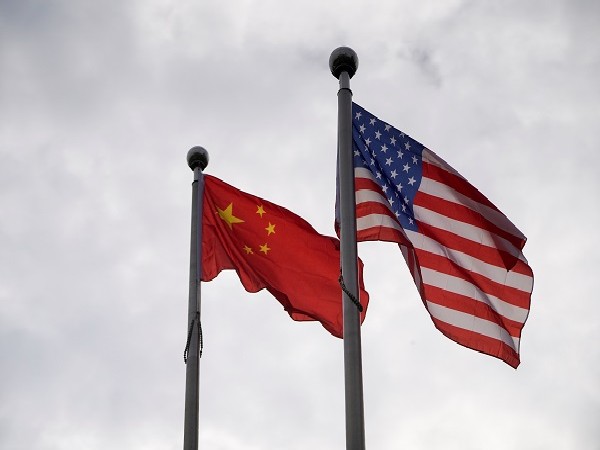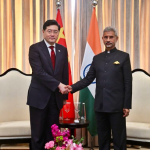Beijing said there is no difference between “de-risking” and “de-coupling” as both will lead to the departure of foreign firms from China….reports Asian Lite News
Last week, Yellen embarked on a four-day diplomatic trip to China, where she met top Chinese economic officials, including Premier Li Qiang, former Vice Premier Liu He, and former People’s Bank of China Governor Zhou Xiaochuan.
This was Yellen’s first visit to Beijing as Washington’s chief financial officer, yet many economists worry the US and China’s competing interests may make the trip fruitless at best — and downright hostile at worst. But that is not how the Chinese government and media, both, have played the visit
In contrast to the earlier visits of US Secretary of State Antony Blinken flowing to China for bilateral talks — months after his February trip was cancelled due to evidence of a Chinese spy balloon over American territory.
She is considered a politician with a ‘Dovish’ image in China due to her pragmatic style as an economist, and which has helped her to have working friendly relations with top Chinese officials.
The manner in which her visit was referred to by Premier Li also demonstrates that Chinese have high hopes from this visit and wants Yellen to take the message back with her for President Biden that there will be no winners in trade wars and an economic “decoupling is futile.
The comments, which were made by Premier Li, however have been very uplifting as usually Chinese leadership refrains from making such comments.
Li said: “Yesterday, the moment you arrived at our airport and left the plane, we saw a rainbow, I think it can apply to the US-China relationship too: after experiencing a round of winds and rains, we surely can see a rainbow.” Li further said Chinese enterprises must observe the world economy and look forward and cannot just look at the water under their feet on rainy days.
He said this practice could also be applied to the Sino-US relations. In May, G7 leaders met in Japan and agreed that their members should “de-risk” from China.
Beijing said there is no difference between “de-risking” and “de-coupling” as both will lead to the departure of foreign firms from China.
In contrast Yellen preferred to describe the US’ strategy as “diversification” and hopes to emphasise Economic Cooperation—Not Decoupling with Beijing.
Just last week, China announced new restrictions on the export of gallium and germanium, two key metals necessary to produce vital semiconductor chips.
In response, the Biden administration considered placing additional limits on the sale of high-end chips used to develop artificial intelligence — an emerging industry the two powerhouses have raced to control. Still, Yellen hopes to strengthen key Biden administration policies while also reassuring Beijing that the US’ actions aren’t meant to harm the Chinese.
That means emphasising cooperation and supply chain diversification instead of economic decoupling, demanding greater transparency from China’s new espionage law, addressing unfair market barriers against US firms, and discouraging Beijing from supplying Russia with lethal aid in its war against Ukraine — something China continues to deny doing.
China’s concerns, however, centre more on past US actions.
Specifically, top Chinese officials want to counter tough trade tariffs imposed during the administration of former President Donald Trump, as well as sanctions against Chinese companies.
Yellen faces a tough challenge, for she has to convince Beijing that the slew of “de-risking” measures Washington, and some of its allies, have been taking are not intended to contain China or decouple the two economies.
Her job is all the more difficult all the wrong moves targeting China have been initiated by the United States. Yellen’s is perhaps the only voice of reason amid the belligerent anti-China din in Washington, currently. She has termed the tariffs that the US has imposed on China, as “taxes on consumers “and warned,” decoupling could be “disastrous”.














